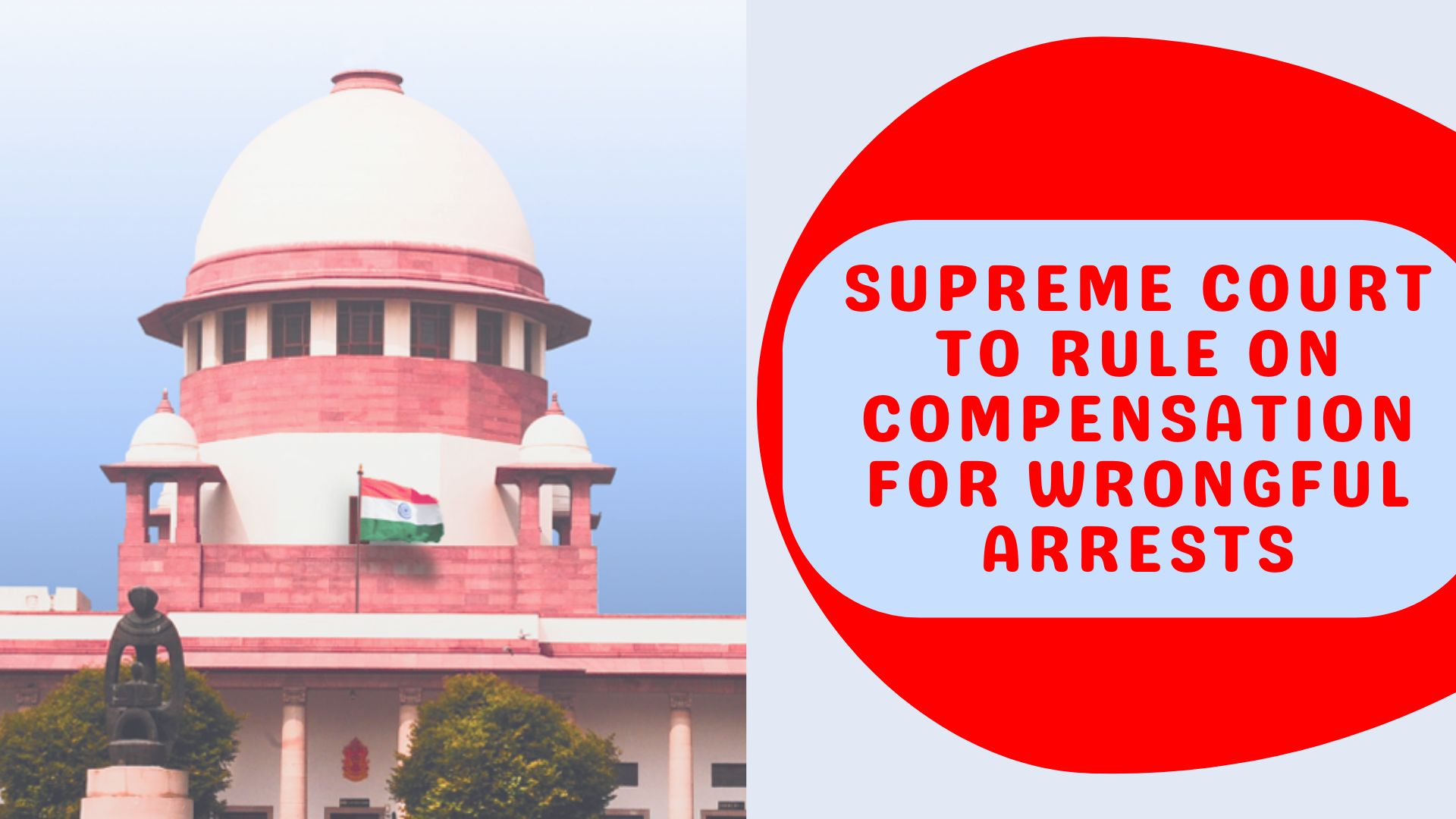
Supreme Court to Decide on Compensation for Wrongful Arrest and Long Incarceration
Top Court to examine if State must pay for years lost in prison after acquittal
Case could set precedent for victims of wrongful conviction across India
By Our Legal Reporter
New Delhi: October 29, 2025: The Supreme Court of India has agreed to hear a set of petitions that could change the way the justice system treats victims of wrongful arrest and incarceration. The petitions have been filed by men who spent years in jail, including time on death row, before being acquitted by the apex court.
A bench of Justices Vikram Nath and Sandeep Mehta issued notice to the Union government and requested the Attorney General of India and the Solicitor General to assist in the matter. The Court observed that “mere release from incarceration is not enough” and that the State may be required to pay appropriate compensation for the violation of fundamental rights.
The Petitioners’ Cases
The lead petitioner, Ramkirat Munilal Goud, spent 12 years in prison, including six years on death row, after being convicted in a rape and murder case. In May 2025, the Supreme Court acquitted him, ruling that the conviction was based on a flawed and tainted investigation.
Two other men, also sentenced to death by trial courts and later acquitted by the Supreme Court, have joined the plea. All three argue that their wrongful incarceration caused irreparable damage to their lives, families, and livelihoods.
Why This Case Matters
- India lacks a clear legal framework for compensating victims of wrongful conviction.
- Article 21 of the Constitution guarantees the right to life and personal liberty, which includes the right to a speedy and fair trial.
- The petitioners argue that wrongful imprisonment is a serious violation of fundamental rights and must be compensated.
- The Court’s decision could set a historic precedent for future cases.
International Practices
Globally, many countries have laws that provide compensation for wrongful convictions:
- United States: Federal law allows compensation of up to $50,000 per year of wrongful imprisonment.
- UK: Compensation is available under the Criminal Justice Act, though capped and subject to strict conditions.
- Germany and Japan: Provide statutory compensation for wrongful incarceration.
India, however, has no such statutory scheme, leaving victims to rely on constitutional remedies through the courts.
Supreme Court’s Observations
The bench noted that:
- Release alone is not justice; victims deserve compensation for years lost.
- Wrongful convictions often result from poor investigations, weak evidence, or prosecutorial lapses.
- The issue requires serious consideration since it affects not only the individuals but also the credibility of the justice system.
Legal Experts’ Views
- Senior lawyers say this case could finally push India to adopt a statutory compensation framework.
- Human rights activists argue that wrongful incarceration is a form of state-inflicted injustice and must be remedied.
- Judicial reform advocates believe compensation will also force police and prosecutors to be more accountable.
Wider Impact on Society
If the Court rules in favor of compensation:
- It could open the door for thousands of undertrial prisoners and acquitted individuals to seek damages.
- It may lead to systemic reforms in policing and prosecution.
- It would strengthen public trust in the judiciary by acknowledging and correcting mistakes.
Challenges Ahead
- Determining the quantum of compensation will be complex. Should it be based on years lost, mental trauma, or loss of livelihood?
- The financial burden on states could be significant if many such claims arise.
- The Court will need to balance individual rights with public resources.
Conclusion
The Supreme Court’s decision to hear these petitions marks a turning point in Indian criminal jurisprudence. For the first time, the Court may lay down clear principles on whether the State must compensate victims of wrongful arrest and incarceration.
If successful, the case could bring justice and dignity to those who lost years of their lives to wrongful convictions and could pave the way for long-overdue reforms in India’s criminal justice system.
ALSO READ POPULAR ARTICLES
-
Supreme Court Raps NMC for Not Paying Medical Intern Stipends
-
Supreme Court Halts GST Assessment on Joint Development Deals
-
Supreme Court Explains Demurrer Law in Neelkanth Realty Case
-
Supreme Court Opens Door for Vodafone Idea Relief in AGR Case
-
Delhi High Court Rules No Alimony for Financially Independent Spouse
-
Akshay Kumar Moves NCLAT Against Edtech Firm Over ₹4.83 Cr Dispute
-
SC Quashes Chhattisgarh Tender Clause Favoring Local Bidders
-
SC to Examine Validity of Securities Transaction Tax on Trading
-
SC Defers Vodafone Idea ₹5,606 Crore AGR Dues Hearing to Oct 13
-
Punjab & Haryana HC: Bail Can’t Be Cancelled for Seeking Hearing Exemptions
-
Delhi HC Protects Mankind Pharma’s ‘Kind’ Trademark, Bars Similar Names
-
Delhi HC Appoints Justice Rajiv Shakdher as Arbitrator in Playboy Bar Dispute
-
Karisma Kapoor’s Kids Challenge Sunjay Kapur’s Will in Delhi HC
-
SC Questions Dual Madras HC Hearings, Reserves Verdict on TVK Plea
-
SC Lets Judicial Officers With 7 Years Bar Apply for District Judge
-
SC to Hear Vijay’s TVK Plea Against SIT Probe in Karur Stampede
-
SC Probes Financial Irregularities in Indiabulls Housing: ED
-
Delhi HC Quashes 22-Year-Old Case Against Lawyer Over Basement Office
-
SC Seeks Rehab Plan for Cadets Injured During Military Training
-
SC PIL Seeks CBI Probe, Nationwide Review on Cough Syrup Deaths
-
Delhi HC Hikes Land Compensation for Yamuna Project Villagers
-
Punjab & Haryana HC: Bail Can’t Be Denied Over No Permanent Home
-
SC: Appellate Courts Can Correct Trial Court Evidence Errors